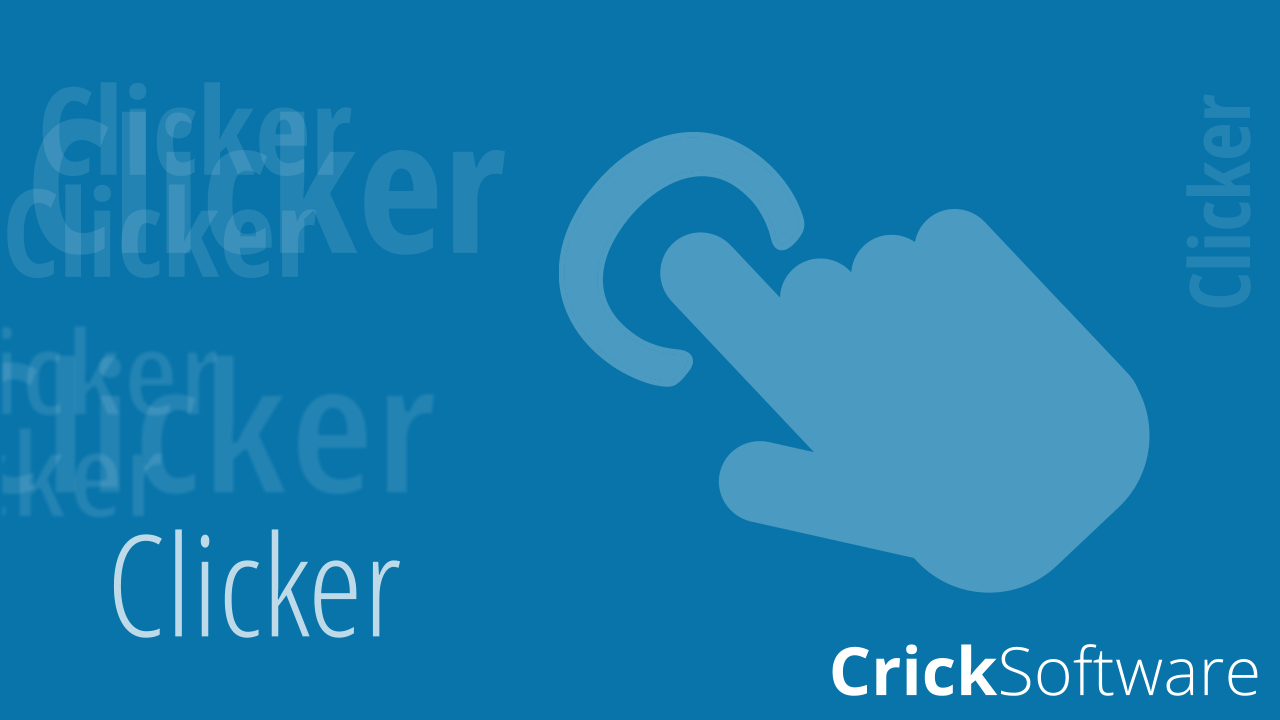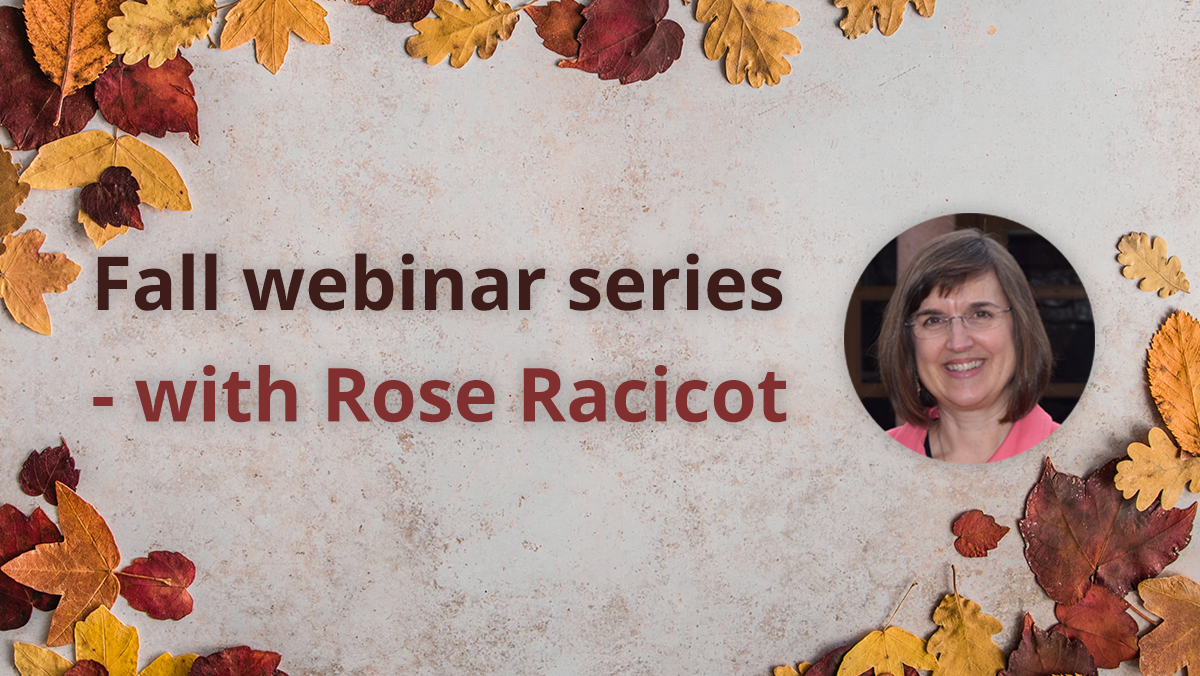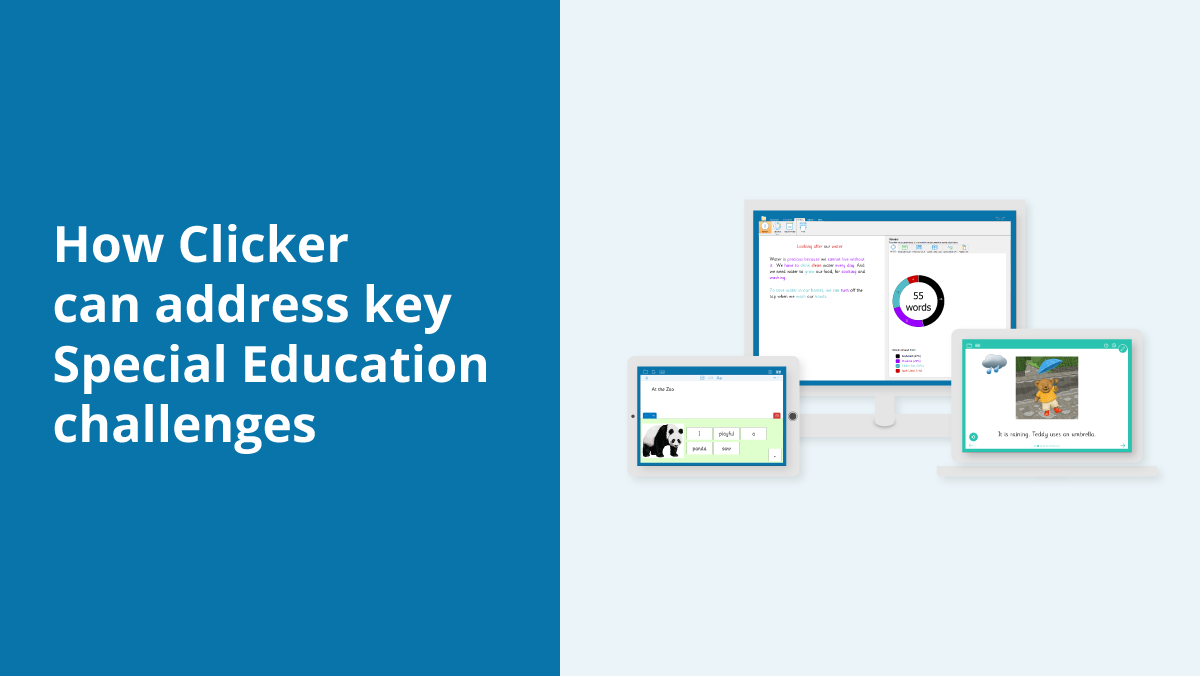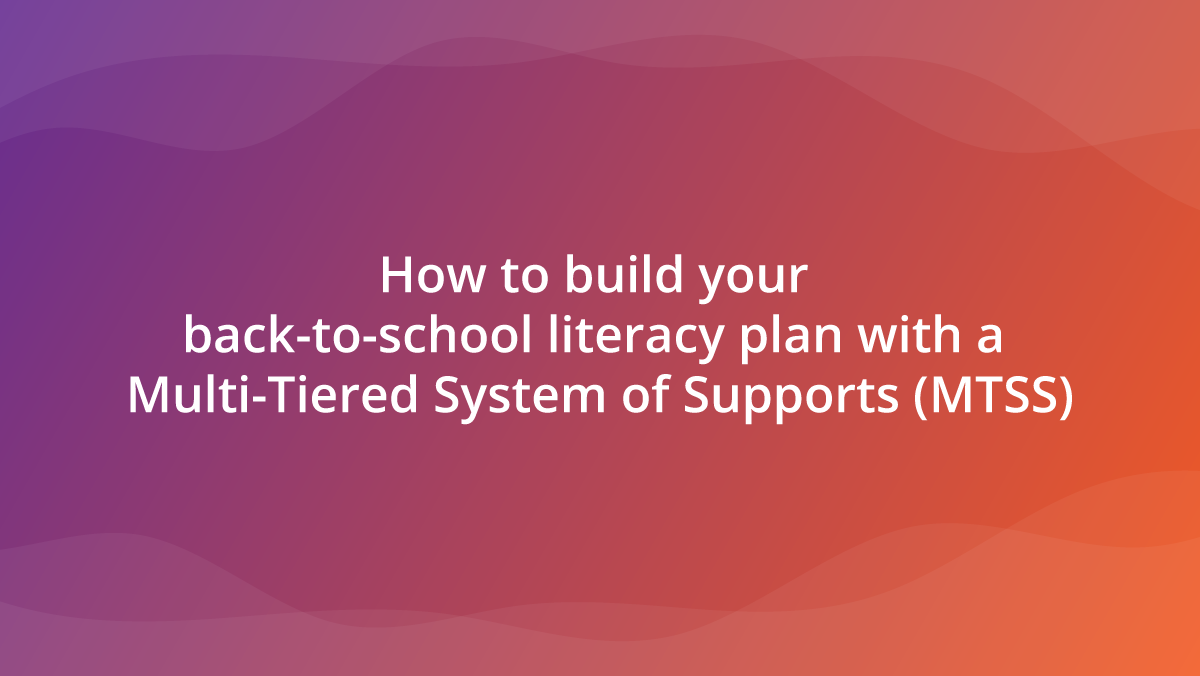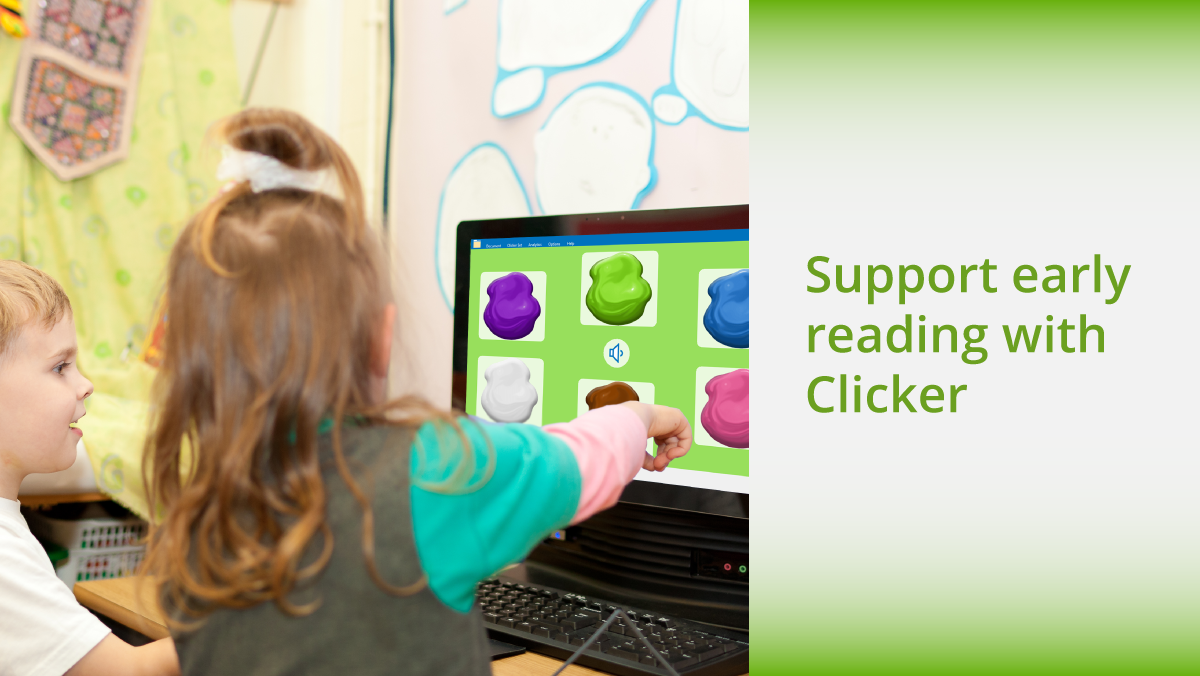Clicker is a great tool in supporting learners at all stages of their literacy journey. With lots of recent talk about cognitive load theory and its implications on learning, I wanted to explore some ideas about how Clicker can help.
First the science …
Students are often bombarded with information and ideas when they are learning new topics, and not surprisingly, this can be overwhelming! Often, they grasp some of the learning, but not quite all – and this impacts not only the present but also future learning outcomes.
It’s all to do with our “working (short-term) memory” and how it can only deal with a limited amount of information at any one time. Too much and the result, according to educational psychologist John Sweller, is “cognitive overload.” When we exceed the capacity of our working memory, our learning is impeded.
There are strategies to reduce the load on short-term memory, and many of these are well supported and facilitated by Clicker. Essentially, students need to build up a secure store of knowledge in their long-term memory – so they can draw on it when they meet new topics and don’t rely solely on (and overload) their short-term memory. The trick is making sure that the knowledge has been processed and fully understood in the children’s working memory first – if it has, it will be transferred to their long-term memory to support future learning.
Activating prior knowledge before starting work on new learning, encourages students to pull what they have previously learned (from their long-term memory) into their working (short-term) memory. They can then take the new information, building it onto what they already know, to create a more developed body of knowledge to store in their long-term memory for future learning.
Cloze activities in Clicker are a great way to revisit key concepts and assess students’ knowledge and understanding – as well as identifying any “gaps.” Satisfyingly quick and easy to create – simply add any text into a Cloze Document and remove keywords to check knowledge.
Say for example, we are learning about how plants grow in science. Before we begin reading our Plant Life Cycle book, we might want to do a quick recap on the names and functions of plant parts, as these will be terms revisited in a new context. So we could create a quick retrieval practice Cloze activity (I used the text from the Clicker Book About Plants – Read a Book). Prior knowledge is consolidated, and we are ready to move onto the new learning about how each these parts grows as part of a plant’s life cycle.

Other types of low-stakes retrieval exercises – such as Matching or Talk – also provide valuable extra practice, reinforce memory, and ascertain what students do (and don’t) know. You could also use a Clicker Board at the start or end of a lesson and/or topic to create a mind map to summarize previous knowledge and understanding. Get students to use Talk Sets to orally demonstrate knowledge. They could research a topic for 10 minutes and then record an information podcast about 10 key points. Many of our Reading Books are linked to complementary Talk Sets, so this is often an activity on LearningGrids that is ready to go!
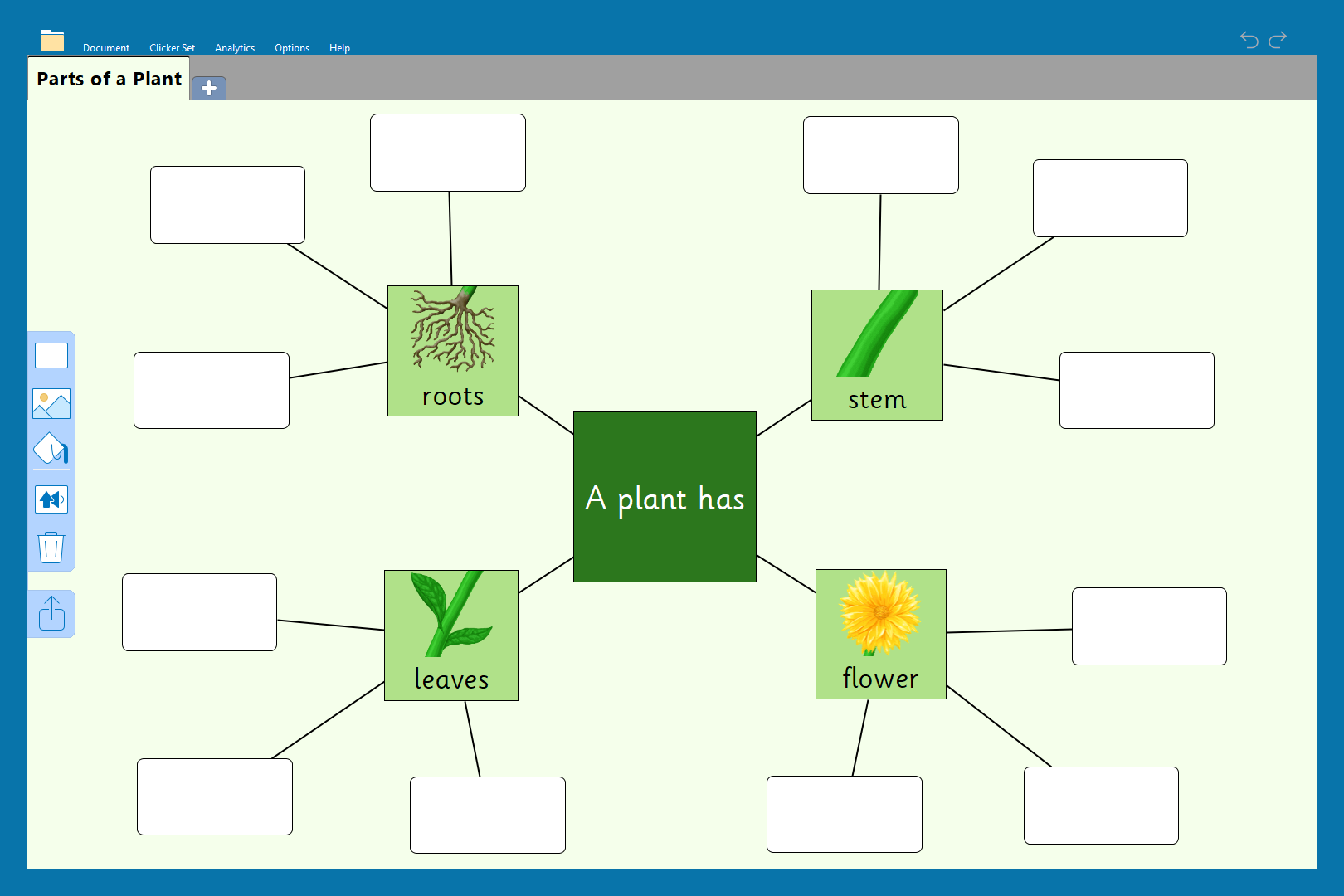
Research shows that providing frameworks and models can also support learners. The frames act as a prop, freeing up working memory capacity which then builds onto their long-term memory. The models can be gradually “faded” (removed) to encourage more independent working as learners’ knowledge and confidence grow, so they get the right level of support at each stage.
Continuing with the plants theme, we might start with a Sentence Set which offers a clear model to write simple sentences about parts of a plant. The next stage might be a structured writing frame with a lot of information, like our Connect Set on the same topic. This could be followed by a “frame” in the form of a Word Bank with less structure and information, although vocabulary is still arranged in topic tabs for a softer level of guidance. The ultimate goal is that learners are able to work without a writing frame, although we could still offer vocabulary in an A – Z format which requires much more independent application.
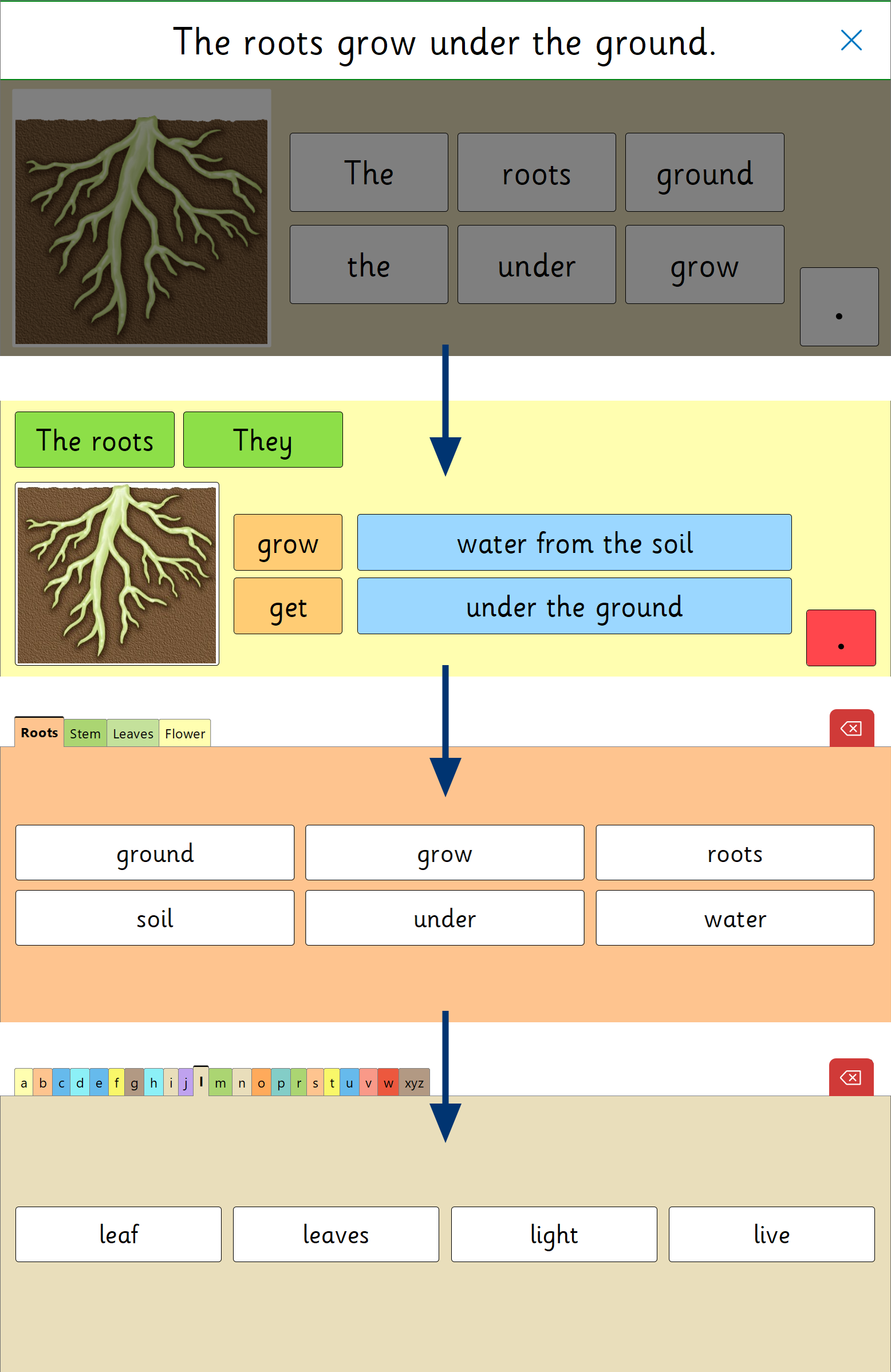
These are all great features of Clicker which can help with memory capacity and retention. Search on LearningGrids for a range of activities, including Sentence Sets, Connect Sets, and Word Banks.

